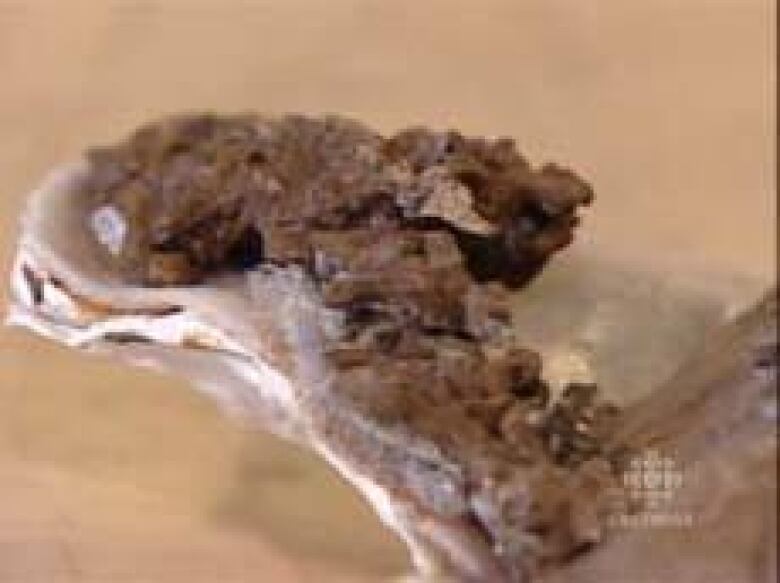World's 1st pregnant turtle fossil found in Alberta

A 75 million-year-old fossilized pregnant turtle is going on display for the first time since it was found in Alberta nine years ago.
Scientists from the University of Calgary and the Royal Tyrrell Museum found the fossil in the badlands of southeastern Alberta in 1999, but the description of the discovery wasn't published until Wednesday in the British journal Biology Letters.
Paleontologist Darla Zelenitsky said Thursday one of the reasons for the delay was because she wanted to present the fossil alongside a nest of fossilized eggs she and her field assistant subsequently found in 2005.
Both specimens, which belong to an extinct river turtle called Adocus, were found about 85 kilometres south of Medicine Hat in the Manyberries area.
It's the first time the fossil of a pregnant turtle has beendiscovered anywhere in the world.
"Although it is relatively rare to find the eggs and babies of extinct animals, it is even rarer to find them inside the body of the mother," Zelenitsky said.

The remains of at least five crushed eggs can be seen inside the body of the fossil, and a CT scan showed there were more eggs hidden under its shell. The turtle is about 40 centimetres long.
"This particular turtle gives us insight into the evolution of eggs and reproductive traits in living turtles and tortoises," Zelenitsky said.
The Adocus eggs are thick and hard, while those laid by modern turtles are thinner or soft-shelled, which leads scientists to believe the eggshell may have evolved to protect eggs from drying out or from predators.
The nest, which was laid by a different female, contained 26 eggs, each about four centimetres in diameter.
The fossil will be on display at the Royal Tyrrell Museum in Drumheller beginning on Friday.












_(720p).jpg)


 OFFICIAL HD MUSIC VIDEO.jpg)
.jpg)



























































































